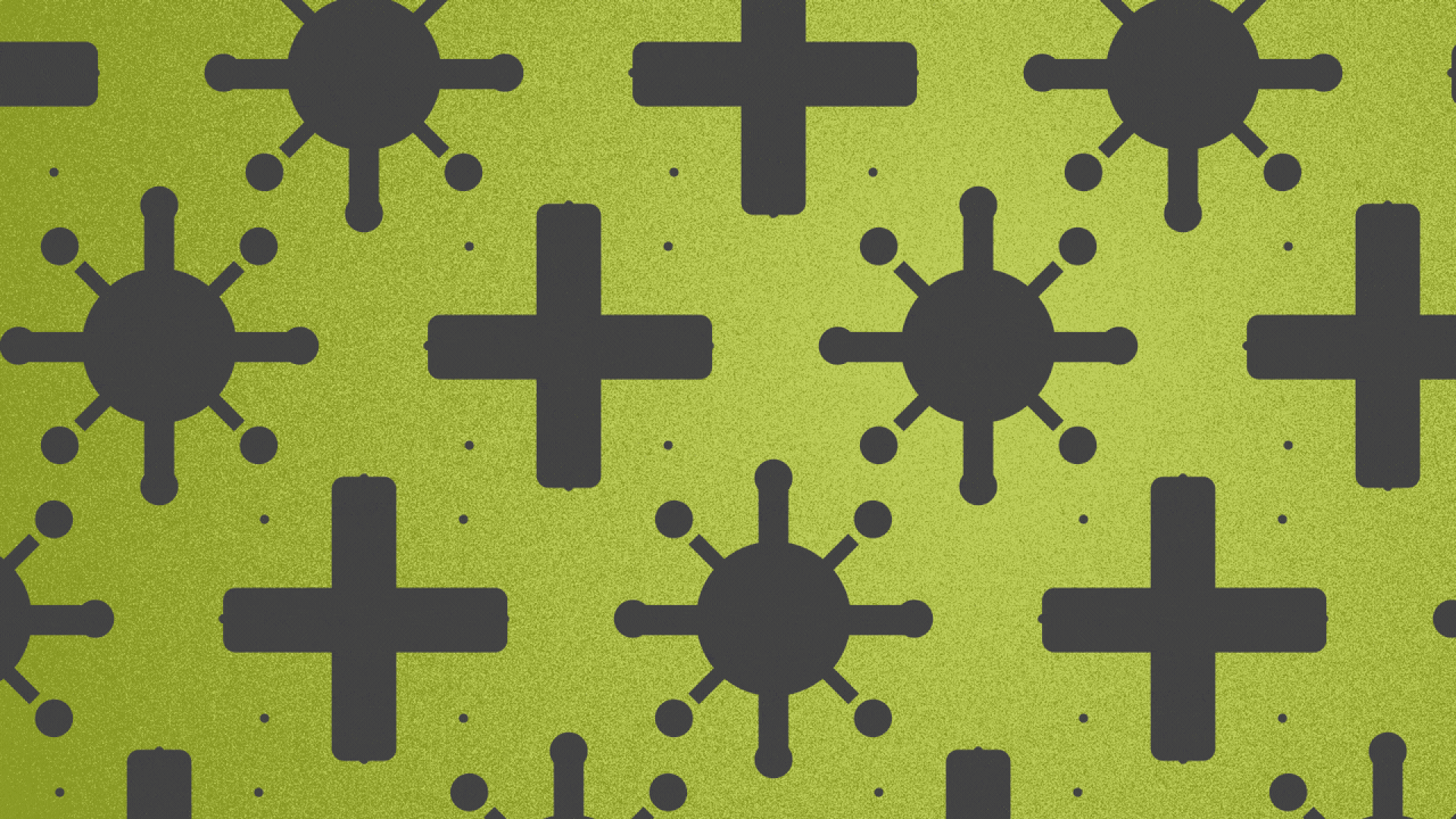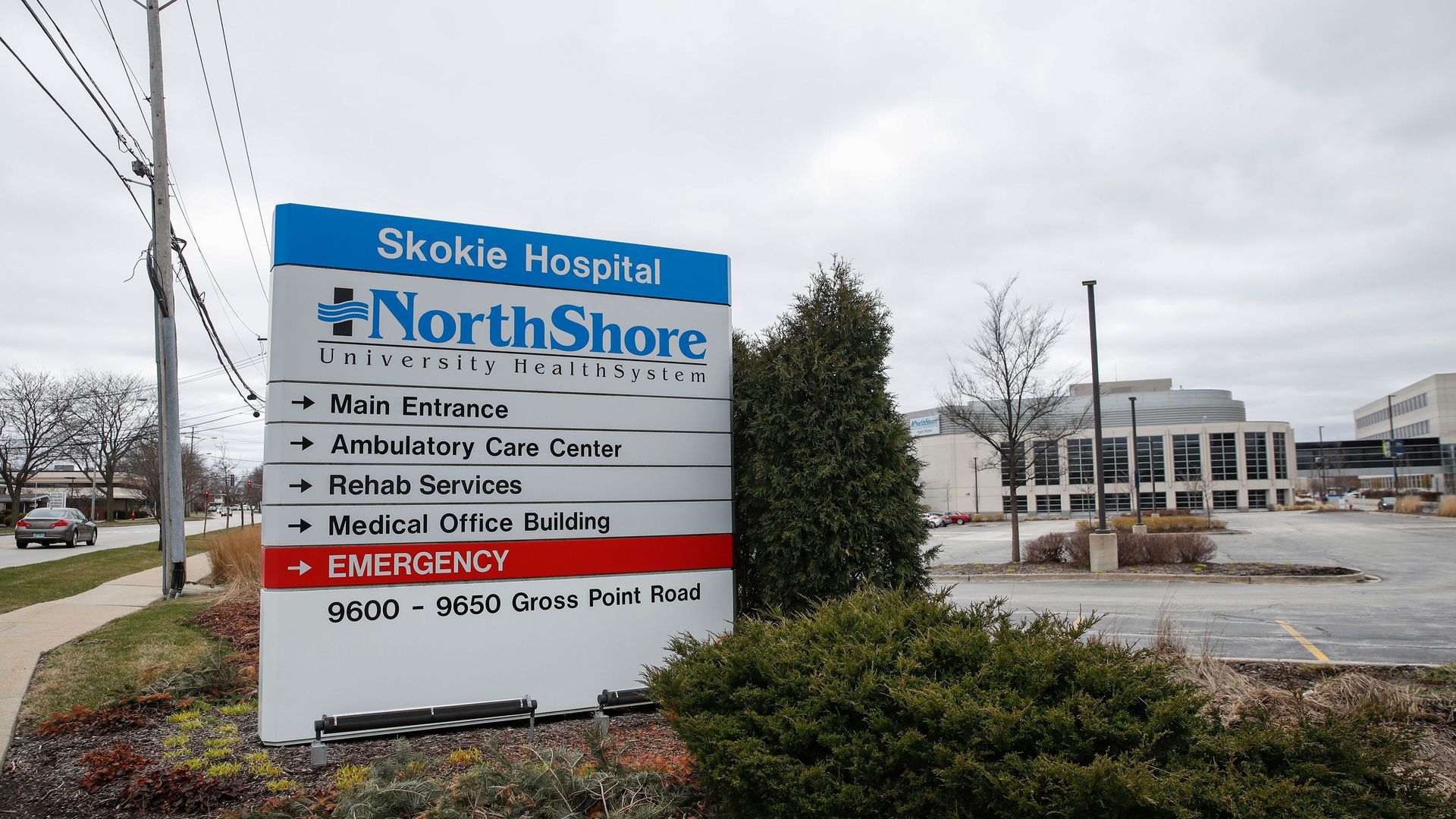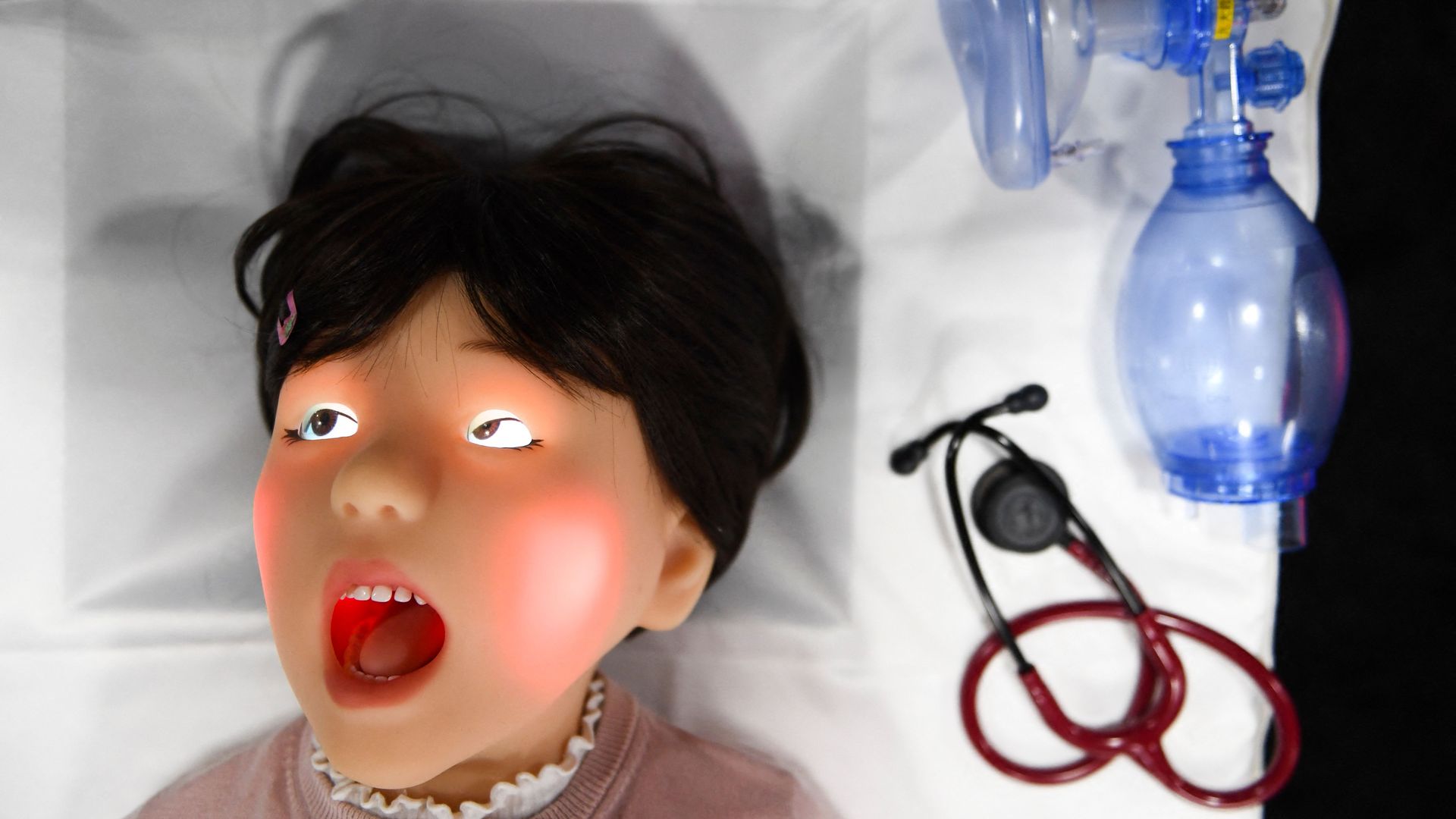| |
| |
| |
| |
| |
| Axios Vitals |
| By Tina Reed ·Jan 06, 2022 |
| Good morning Vitals readers. Today's newsletter is 810 words or a 3-minute read. |
| |
| |
| 1 big thing: More coronavirus testing concerns |
 |
|
| Illustration: Brendan Lynch/Axios |
| |
| People may not test positive on rapid nasal tests until after they are infectious, which would make the tests an unreliable measure of whether it's safe to gather, Axios' Caitlin Owens reports. The big picture: Rapid tests have been hailed as a way to weather the Omicron surge without mass disruption to everyday life. - But they've been in short supply for weeks, and now new research — along with loads of anecdotal evidence — suggests there may be significant limitations to their usefulness with this variant.
Driving the news: A small preprint study released yesterday found that, among a case study of 30 people who took nasal rapid antigen tests and saliva PCR tests at the same time, four of them transmitted the virus following a false negative rapid antigen test. What to watch: The study builds on emerging evidence that saliva swabs may be better for detecting Omicron than nasal swabs. - We should "start thinking about testing saliva, although as with so many things and omicron, we are having to make important decisions in the absence of what would count as a good evidence base," emailed Harvard epidemiologist Bill Hanage.
The bottom line: If you can get ahold of a rapid test, and you test negative on it, that may still not mean you're good to go without worrying about spreading the virus. - "That's A plus B equals C," said Michael Osterholm, director of the Center for Infectious Disease Research and Policy at the University of Minnesota. "A, a shortage of tests. B, they may not be that accurate. C, mass confusion."
|
    |
| |
| |
| 2. COVID cases soar by more than 200% |
 Data: N.Y. Times; Cartogram: Kavya Beheraj/Axios The number of new COVID cases more than tripled over the past two weeks, shattering records across the U.S., Axios' Sam Baker writes. Where it stands: The U.S. is now averaging nearly 550,000 new cases per day — a 225% increase over the past two weeks, and by far the highest levels of the entire pandemic. - That's likely an undercount, as many people are testing themselves at home.
In previous waves, a sharp increase in cases would translate into a similar increase in hospitalizations, and then deaths. Omicron, however, appears to cause severe illness at a much lower rate. - In South Africa and the U.K., patients who were infected with the Omicron variant were significantly less likely to require hospitalization than those infected with Delta.
- In the U.S., the number of people who are in the hospital and infected with COVID is rising. But experts caution those figures include people who went to the hospital for something else, and tested positive once they got there.
- Intensive-care units haven't seen a significant increase in COVID patients even as cases explode, the New York Times reports.
- COVID deaths are holding steady at roughly 1,300 per day, on average.
Share this story. |
    |
| |
| |
| 3. Excess deaths tied to urban air pollution |
 |
|
| Illustration: Rebecca Zisser/Axios |
| |
| Nearly nine in 10 people living in cities around the world — or about 2.5 billion people — are exposed to unsafe levels of air pollution annually, according to a new study published in The Lancet Planetary Health. Why it matters: The study, led by George Washington University researchers, shows the tangible health impacts of high concentration of air pollution. - They estimate there were at least 1.8 million excess deaths linked to the inhalation of fine particulate matter in 2019.
- "Avoiding the large public health burden caused by air pollution will require strategies that not only reduce emissions but also improve overall public health to reduce vulnerability," said lead author Veronica Southerland.
Of note: A second GW-led study published in the journal on Wednesday, found nearly 2 million cases of asthma in children are linked to traffic-related nitrogen dioxide air pollution. Two in three of those cases were in urban areas. |
    |
| |
| |
| A message from Axios |
| Axios Pro: Deals is (almost) here |
| |
 |
| |
| Axios Pro: Deals launches later this month. What's new: Pro subscribers recieve daily premium newsletters, exclusive articles, invitations to Pros-only events, and more. Join the Axios Pro waitlist and get $100 off your subscription. |
| |
| |
| 4. Mega-merger in Chicagoland |
 |
|
| NorthShore is consolidating the hospital market in affluent Chicago suburbs. Photo: Kamil Krzaczynski/AFP via Getty Images |
| |
| NorthShore University HealthSystem and Edward-Elmhurst Health have merged into a nine-hospital system that will have roughly $5 billion in annual revenue and a dominant presence in Chicago's affluent north and west suburbs, Axios' Bob Herman writes. The big picture: The pandemic has slowed down hospital merger activity, according to health care financial advisory firm Ponder & Co., but it didn't completely stop all deals — especially large mega-mergers like this NorthShore-Edward deal that pursue regional consolidation. |
    |
| |
| |
| 5. Pic du jour: Machine learning |
 |
|
| Photo: Patrick T. Fallon/AFP via Getty Images |
| |
| Health and wellness tech were among the most popular trends at the Consumer Electronics Show in Las Vegas this week, CBS News reports. - There were also a number of humanoid robots, such as the tmsuk Pedia-Roid ER training robot.
- As AFP reporter Joshua Melvin aptly wrote: "The line between cool and slightly disturbing robots can be thin."
See video of robot. |
    |
| |
| |
| 6. Catch up quick |
- The CDC recommends Pfizer boosters for 12- to 17-year-olds. (Axios)
- Merck, Pfizer, Lilly and J&J restored funding to legislators who stoked Jan. 6 Capitol attack, watchdog says. (Fierce Pharma)
- Omicron is closing schools all over the country. (Axios)
- White House: No plans to change the definition of "fully vaccinated." (The Hill)
- Scoop: IBM tries to sell Watson Health again. (Axios)
|
    |
| |
| |
| A message from Axios |
| Axios Pro: Deals is (almost) here |
| |
 |
| |
| Axios Pro: Deals launches later this month. What's new: Pro subscribers recieve daily premium newsletters, exclusive articles, invitations to Pros-only events, and more. Join the Axios Pro waitlist and get $100 off your subscription. |
| |
| 📫 Did someone forward this email to you? Here's how to subscribe. |
 | Bring the strength of Smart Brevity® to your team — more effective communications, powered by Axios HQ. | | |
No comments